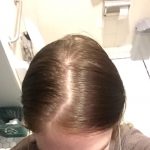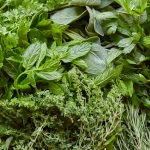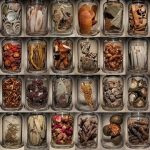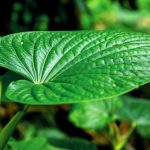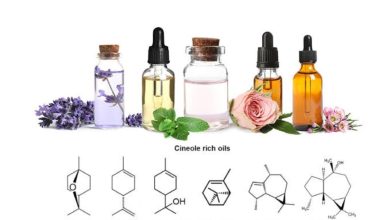List of 10 Best Herbs for Hair Growth
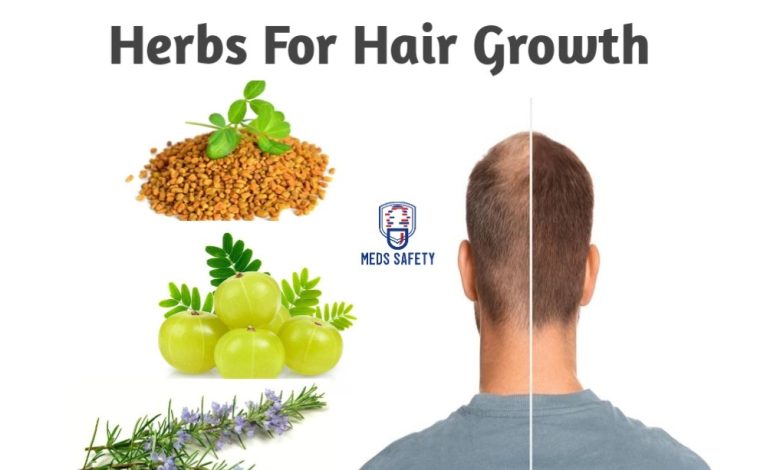
Hair growth issues can lead to a range of concerns, affecting both physical appearance and emotional well-being. One of the most common problems people face is hair loss, which can be attributed to various factors such as genetics, hormonal imbalances, medications, and certain medical conditions. This can result in thinning hair, receding hairlines, and even baldness, causing self-esteem and confidence to plummet. The societal emphasis on a full head of hair as a symbol of youth and attractiveness exacerbates the emotional toll of hair growth issues.
Another significant issue is the struggle to achieve desirable hair growth rates. People often desire rapid hair growth, leading them to experiment with various products, treatments, and remedies, some of which may not be scientifically proven or safe. This eagerness can also trigger disappointment and frustration when expectations are not met. The pursuit of accelerated hair growth may lead to excessive use of hair care products, which can further damage the hair and scalp, perpetuating a cycle of suboptimal growth.
The cosmetic industry has capitalized on hair growth concerns, flooding the market with an overwhelming array of products claiming to promote hair growth. However, this abundance of options makes it difficult for consumers to discern effective solutions from gimmicks. Some products might contain harsh chemicals that could worsen existing hair issues or cause adverse reactions. Misinformation and lack of regulation in the industry further contribute to the confusion, leaving consumers susceptible to making uninformed decisions about their hair care routines.
Psychological stress, a common consequence of hair growth problems, can exacerbate the issues themselves. Stress can disrupt hormonal balance and contribute to hair loss, creating a vicious cycle. Additionally, the emotional toll of hair growth issues can lead to reduced self-confidence, social withdrawal, and even anxiety or depression. This underscores the need for a holistic approach that addresses both the physical aspects of hair growth and the psychological well-being of individuals.
While there are numerous products and treatments available to promote hair growth, nature’s bounty also offers a variety of herbs that have been used for centuries to enhance hair health. Packed with essential nutrients, vitamins, and minerals, these herbs can provide a natural and holistic approach to fostering strong, luscious locks. In this article, we will explore the 10 best herbs for hair growth and delve into their benefits and usage.
10 Best Herbs for Hair Growth
The 10 best herbs for hair growth are:
1. Amla (Indian Gooseberry)
Amla is a powerhouse of antioxidants and vitamin C, essential for collagen production and maintaining healthy hair follicles. It strengthens hair from the roots, prevents premature graying, and encourages hair growth. Amla can be consumed internally or applied as oil to nourish the scalp.
2. Bhringraj
Bhringraj, known as the “king of herbs” for hair, is revered in Ayurveda for its hair-stimulating properties. Rich in nutrients like iron and vitamin E, it helps improve blood circulation to the scalp, promoting hair growth and preventing hair fall.
3. Fenugreek
Fenugreek seeds are a rich source of proteins and nicotinic acid, which stimulate hair follicles and enhance hair growth. Regular use of fenugreek seeds as a paste or infused oil can also help combat dandruff and soothe an irritated scalp.
4. Rosemary
Rosemary is known for its ability to improve circulation, which in turn nourishes hair follicles. It also contains ursolic acid that helps to increase hair thickness. Using rosemary-infused oil or shampoo can strengthen hair and promote growth.
5. Hibiscus
Hibiscus flowers are rich in amino acids that nourish hair, making it stronger and smoother. The flower also helps balance the scalp’s pH and combat dandruff. Hibiscus can be used in the form of oil, powder, or as a part of hair masks.
6. Ginseng
Ginseng is renowned for its adaptogenic properties that help combat stress-induced hair loss. It stimulates hair follicles and enhances cell growth, leading to increased hair volume. Ginseng can be consumed as a supplement or used in hair care products.
7. Neem
Neem has powerful antibacterial and antifungal properties that cleanse the scalp and prevent infections that could lead to hair loss. Neem oil or neem-infused products can help maintain a healthy scalp environment, allowing for optimal hair growth.
8. Aloe Vera
Aloe vera contains enzymes that promote healthy hair growth by removing dead skin cells from the scalp, allowing hair follicles to breathe. It also has a soothing effect on the scalp and can be used as a gel or incorporated into hair care products.
9. Saw Palmetto
Saw palmetto is known to inhibit the production of DHT (dihydrotestosterone), a hormone linked to hair loss. As a result, it can help prevent hair thinning and promote stronger, healthier hair growth.
10. Peppermint
Peppermint oil increases blood circulation to the scalp, promoting hair growth. It also has a cooling effect that helps soothe an itchy scalp. When used in diluted form, peppermint oil can be gently massaged into the scalp.
How to Infuse Herbs Into Oil For Hair Growth
Infusing herbs into oil is a simple and effective way to harness the beneficial properties of herbs for promoting hair growth. Herbal-infused oils can nourish the scalp, strengthen hair follicles, and enhance overall hair health. Here’s a step-by-step guide on how to infuse herbs into oil for hair growth:
Ingredients
• Carrier oil of your choice (such as coconut oil, olive oil, jojoba oil)
• Dried herbs of your choice (such as rosemary, lavender, hibiscus, nettle, etc.)
• Clean, dry glass jar with a lid
Instructions
1. Choose Your Herbs: Select herbs that are known for their hair-strengthening and growth-promoting properties. Rosemary, lavender, hibiscus, and nettle are popular choices, but you can also experiment with other herbs that suit your hair type and needs.
2. Prepare the Herbs: If you’re using fresh herbs, make sure they are completely dry to prevent mold growth in your infused oil. Dried herbs are generally preferred for infusions, as they contain less moisture. Crush or break up the herbs slightly to help release their natural oils and compounds.
3. Select a Carrier Oil: Choose a carrier oil that complements the herbs and suits your hair type. Coconut oil and olive oil are commonly used for hair infusions due to their nourishing properties. Jojoba oil is great for oily scalps, while sweet almond oil is excellent for sensitive scalps.
4. Combine Herbs and Oil: Fill a clean, dry glass jar about halfway with the dried herbs. Pour the carrier oil over the herbs, ensuring they are fully submerged. Leave some space at the top of the jar to prevent overflow during the infusion process.
5. Label and Date: Place a label on the jar indicating the type of herbs and carrier oil used, as well as the date of preparation. This will help you keep track of the infusion process.
6. Warm the Oil: Place the sealed jar in a warm and sunny spot, such as a windowsill, for about 2 to 6 weeks. The sun’s warmth will gently heat the oil and herbs, allowing the herbs’ beneficial compounds to infuse into the oil. Shake the jar gently every day to distribute the herbs and enhance the infusion.
7. Strain the Oil: After the infusion period, strain the oil using a fine mesh strainer or cheesecloth. Squeeze out as much oil as possible from the herbs. The resulting infused oil should have a pleasant aroma and color from the herbs.
8. Store the Oil: Transfer the strained oil into a clean, dark glass bottle or container. Dark glass helps protect the oil from light exposure, which can degrade its quality over time. Store the infused oil in a cool, dark place.
Usage
To use the infused oil for hair growth, simply massage a small amount onto your scalp and hair, focusing on the roots. Leave it on for at least 30 minutes or overnight before washing it out with a mild shampoo. You can incorporate this treatment into your hair care routine once or twice a week.
Infused herbal oils are a natural and gentle way to promote hair growth and overall hair health. As with any new product, it’s advisable to perform a patch test before applying the infused oil to your entire scalp to check for any allergic reactions or sensitivities.
Conclusion
Incorporating these natural herbs into your hair care routine can provide a gentle and effective way to enhance hair growth and overall hair health. However, it’s important to remember that individual results may vary, and consistency is key. Before using any new herb, it’s advisable to do a patch test to check for allergies or sensitivities. While herbs can play a significant role in supporting hair growth, maintaining a balanced diet, proper hydration, and a healthy lifestyle are also essential for achieving and maintaining luscious locks.

